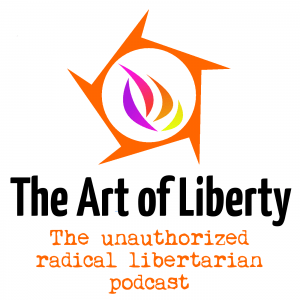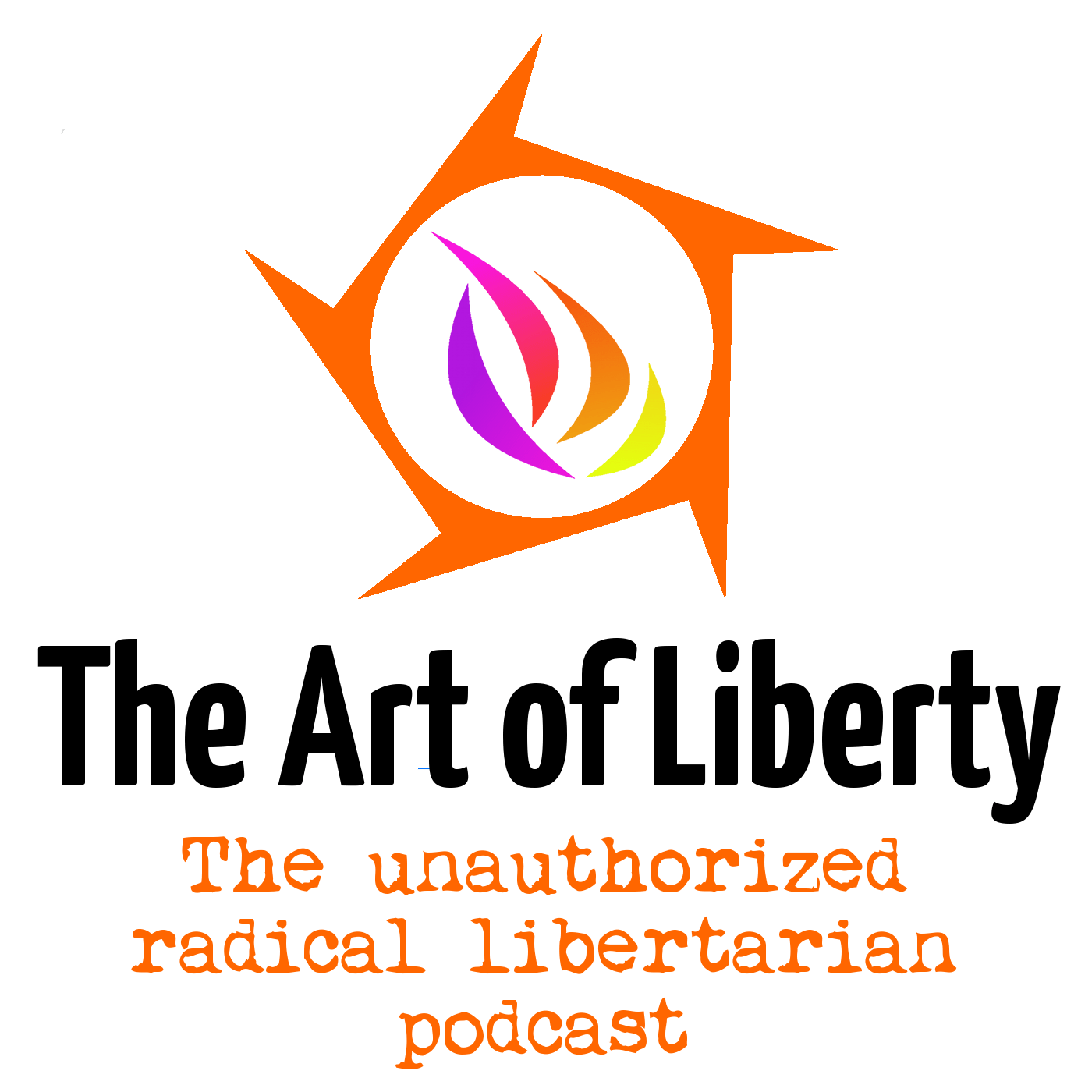 In our seventh episode, John and I talk about homeowners associations and the self-ownership principle. John likes the self-ownership principle. George thinks it’s really stupid. Which one do you agree with? If you can avoid getting dizzy, you’ll find this episode intriguing.
In our seventh episode, John and I talk about homeowners associations and the self-ownership principle. John likes the self-ownership principle. George thinks it’s really stupid. Which one do you agree with? If you can avoid getting dizzy, you’ll find this episode intriguing.
Listen Now
Ask us a Question!
Ask us a Question on Air! Call (641) 715-3900 ext. 255888 and leave us a voicemail with your question so we can play it on the air.
About the Podcast
The Art of Liberty is a 30-minute weekly podcast about current events and politics by John Tyner and George Donnelly, two highly opinionated, yet eminently reasonable, libertarian activists from opposite coasts. We record every Monday morning and release a new episode every Tuesday morning.


5 replies on “TAOL 0007 – Why George Thinks the Self-Ownership Principle is Dumb”
Persons and property are mutually exclusive categories. No, I can’t prove it. Maybe that makes me religious, but for now I guess I find religious to be a lesser evil than cynical.
Thank you! I agree. Property only comes into existence after people come into existence. Without people, there is no property, no language, no concepts, nothing but the natural world at work. So how can people be property or how can property exist before people? It can’t.
I’ll have to see the podcast to know the exact debate points used (which I plan on doing) but in response to your comment George…it can’t. As I see it, the idea of property, owning a chunk of land, or the computer I’m using, my cell phone et cetera, comes from my ownership of myself…if I own myself than whatever I produce is mine, unless I allow someone else a superior claim (i.e. if someone works in a factory, than in exchange for the claim to what they produce while working there, they get paid a wage). Either way I have a good. Let’s call my good a widget. Now I made 10 widgets, and then sell them. I now have money, in the form of say 25 Bitcoins. Now I use 10 of those Bitcoins to buy a laptop. While I didn’t produce the laptop it’s still mine, since the money used to purchase it came from me. If I work in a factory that produces widgets it goes much the same route, only instead of selling the widgets directly to the consumer, I build them, get paid for doing so while the person who pays me sells them. My wages are again used to buy the laptop.
However if I don’t own myself, then the widgets I produce, whether to sell myself, or in a factory for the owner to sell in exchange paying me X amount of money are not mine. In my view property in terms of material goods or land, comes from self-ownership. Sorry if I’m not being clear in describing the point I’m trying to make And I’ll definitely view this episode of the podcast. Who knows I might even be persuaded to your point of view on the matter George.
“if I don’t own myself, then the widgets I produce .. are not mine”
Translated: I must own I so that I can own stuff.
First off, “I own I” is circular. It’s like saying “I am me.” You’re not providing any new information. It’s an unremarkable thing to say. I’m not even sure that it’s a valid concept.
Second, it doesn’t follow that in order to own inaminate obects that you must first own yourself. Can you offer a chain of reasoning for that? What links the two ideas?
Although I enjoyed listening to this podcast, there is much confusion created by George’s insistence that self-ownership is circular & needs to be proven.
First, in philosophy, math, & science, reasoning starts with accepting premises/axioms/laws that cannot be proven. Even the very idea of accepting (note: not proving) premises is dependent on our epistemological understanding. At some level, we have no choice but to accept the world for what it is since we may not have to capacity to PROVE everything. (ie. Is this all a dream?) Hence, there are premises that cannot be proven.
Now the question: What Is the premise behind the self-ownership “principle”? If one refuses the premise to differentiate our intangible consciousness from our physical bodies, then, yes, self-ownership is circular. However, for those that can perceive & accept this premise that our spirit/soul/self is separate from our bodies, then the principle of self-ownership is very useful in establishing discussion/rules/goals of non-aggression. Such as by respecting everyone else’s self-ownership.
Also the enforcement of respecting each other is confused by the lack of rigor defining what is natural & artificial. I understand that George believes there are natural limits to aggression while John believes those limits are engineered. To me, this is purely a semantic debate since in both cases involves social participation. Unfortunately the point is belabored by George & his aversion against the concept of “engineering.” Perhaps since George does not accept the self-ownership “principle” he has to replace it with another: the premise that nature is good (& infinite).
Speaking purely logically, natural is relatively good, not objectively good. Thus, a starving lion will naturally feel “good” about eating you while you may naturally feel that would be a “bad” idea. So choosing to value natural outcomes over engineered outcomes is itself a premise that is taken on faith as much as accepting the value of self-ownership.
Let me conclude that despite the confusion, I really found this podcast great food for thought. I sincerely enjoyed it so much I listened to it twice & took down notes. Thanks to both of you for your time & thoughts.